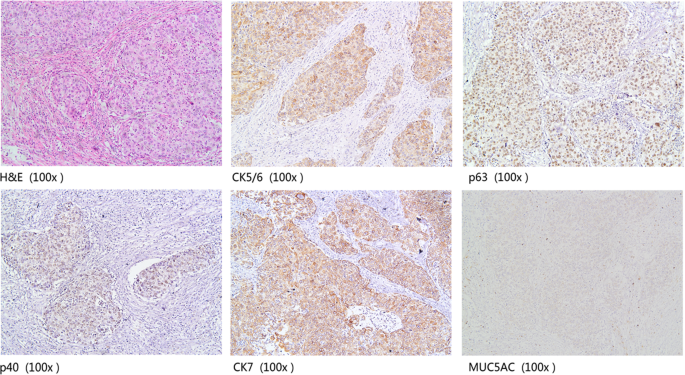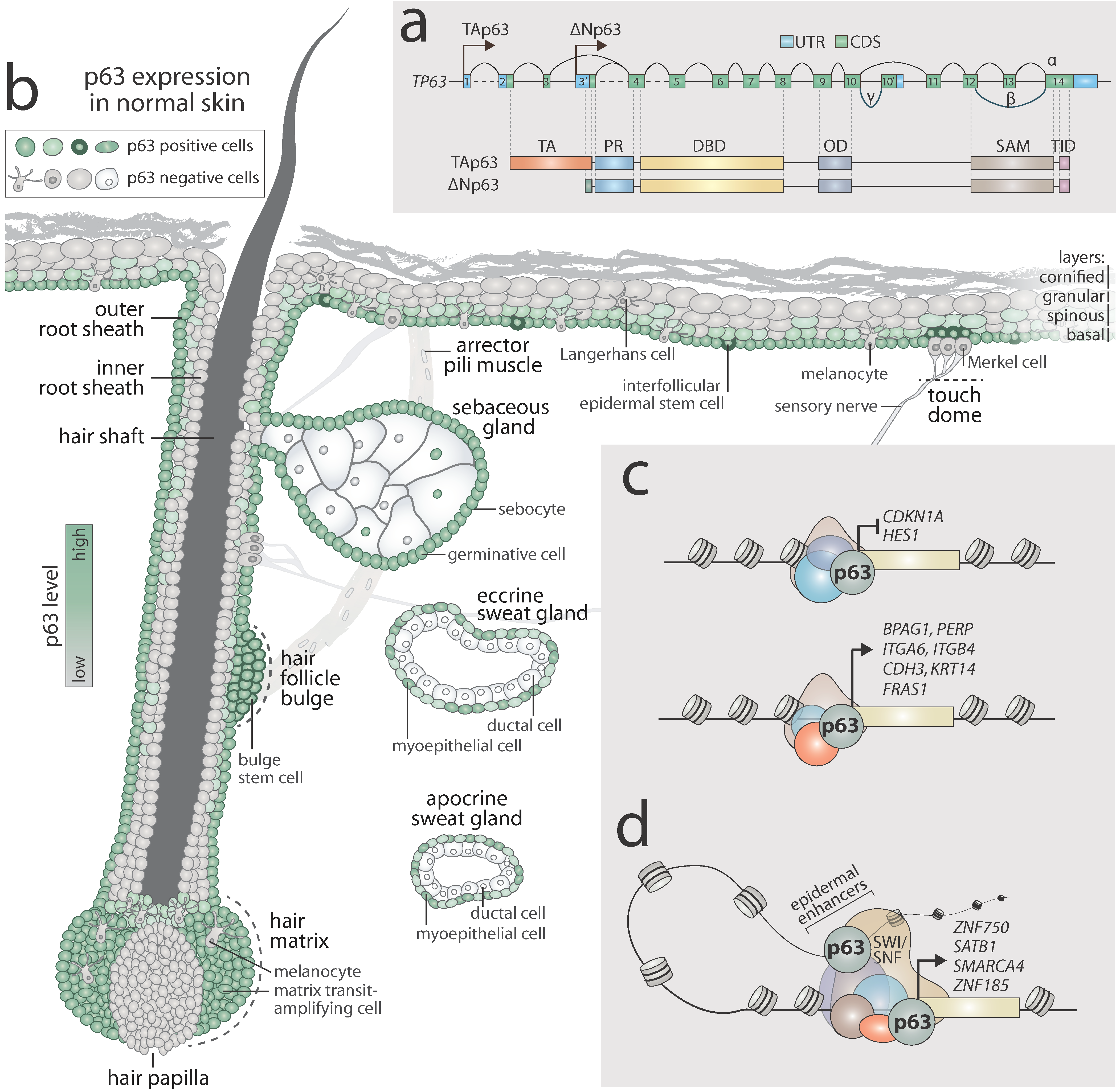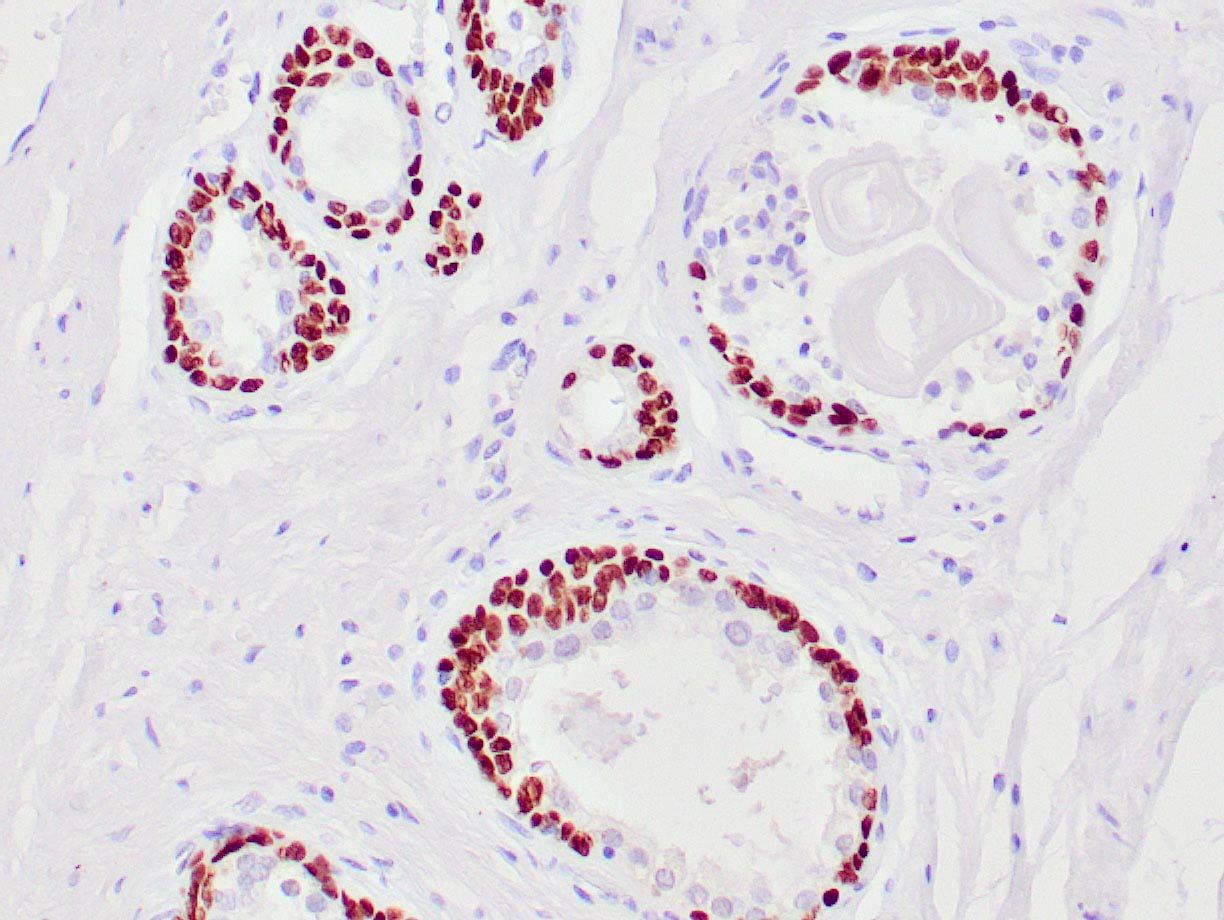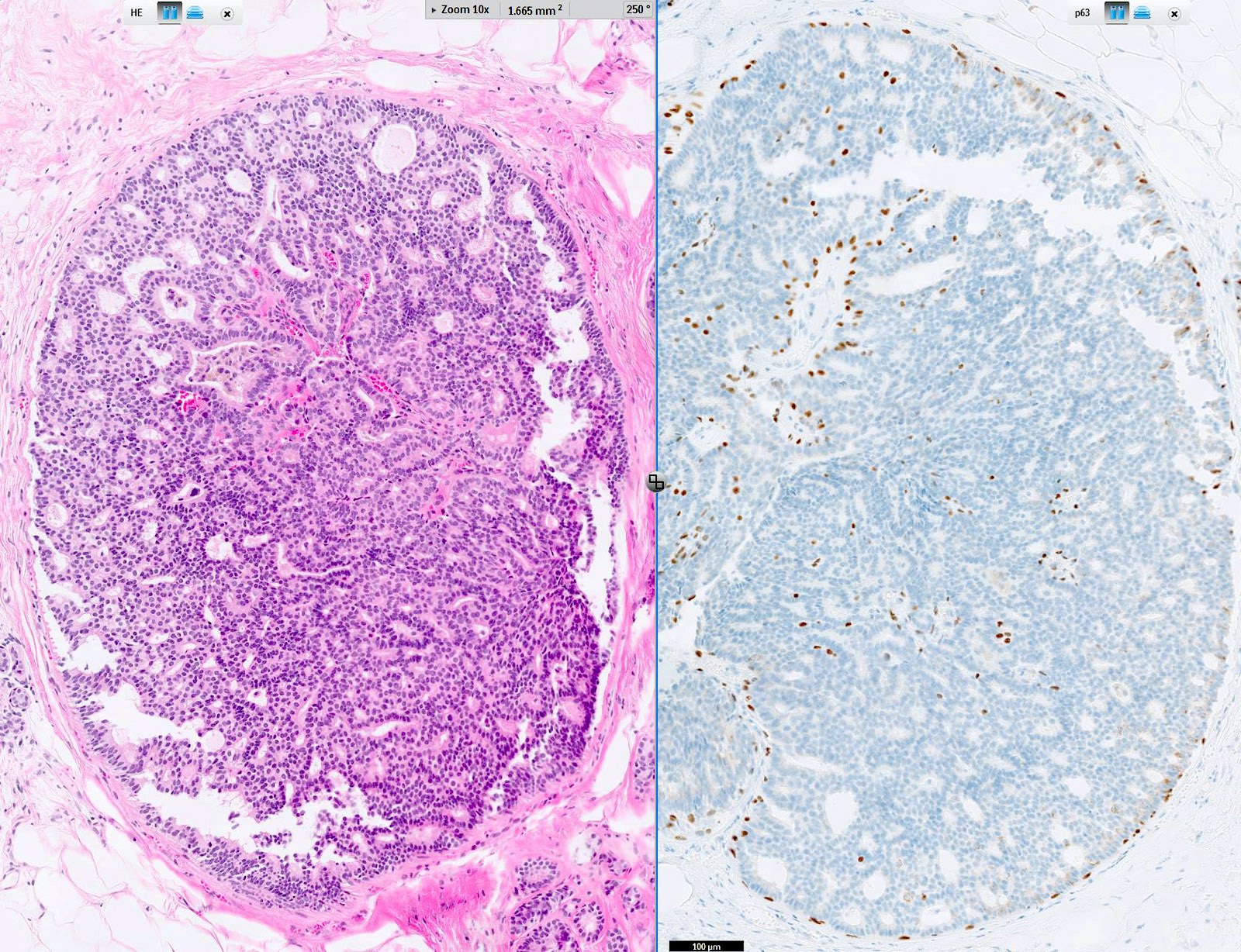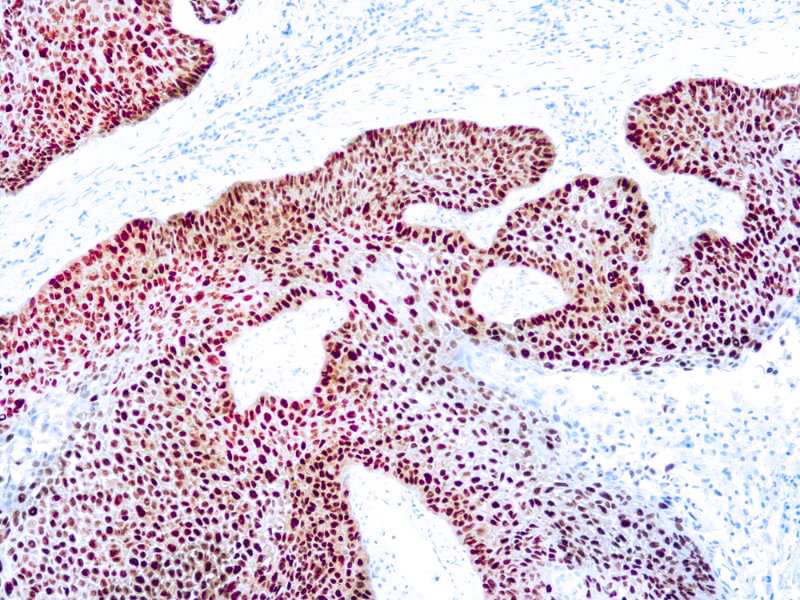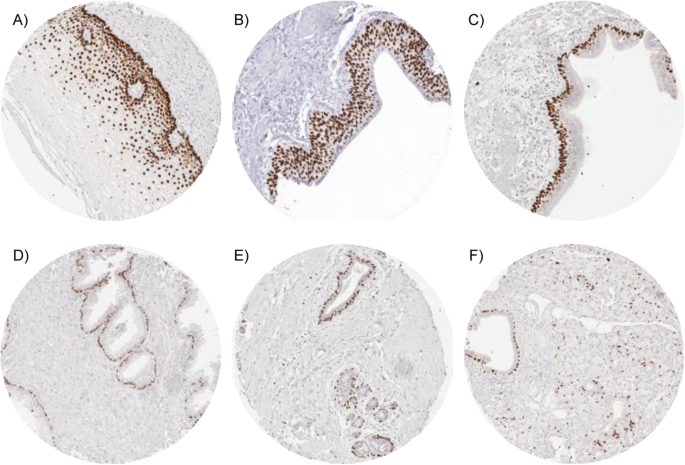
p63 expression in human tumors and normal tissues: a tissue microarray study on 10,200 tumors | Biomarker Research | Full Text

Cancers | Free Full-Text | A Systemic and Integrated Analysis of p63-Driven Regulatory Networks in Mouse Oral Squamous Cell Carcinoma

Predictive markers for pathological complete response after neo-adjuvant chemotherapy in triple-negative breast cancer - ScienceDirect
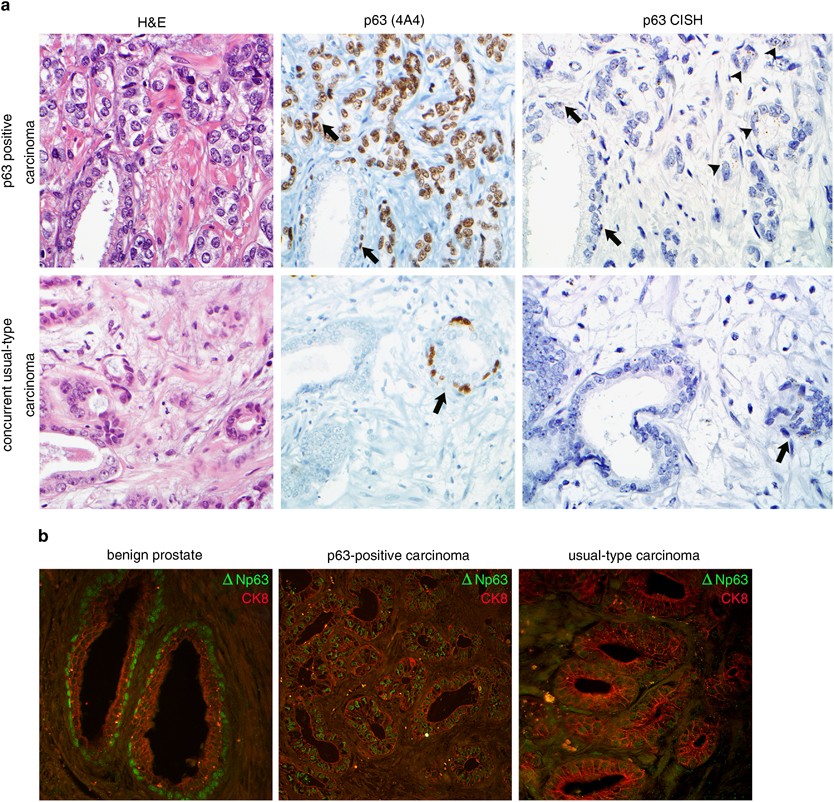
Prostate adenocarcinomas aberrantly expressing p63 are molecularly distinct from usual-type prostatic adenocarcinomas | Modern Pathology
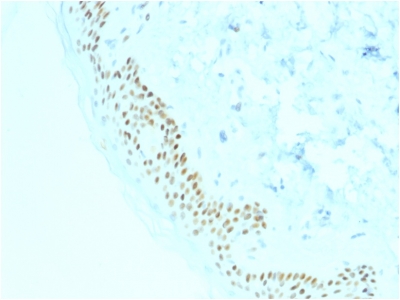
p63 (Squamous, Basal & Myoepithelial Cell Marker) Ultraspecific Antibody Tested against >20,000 Human Proteins – enQuire BioReagents
The Use of P63 Immunohistochemistry for the Identification of Squamous Cell Carcinoma of the Lung | PLOS ONE
The Use of P63 Immunohistochemistry for the Identification of Squamous Cell Carcinoma of the Lung | PLOS ONE

p63 expression in cancerous tissues. Strong p63 immunostaining is seen... | Download Scientific Diagram

Cytoplasmic p63 immunohistochemistry is a useful marker for muscle differentiation: an immunohistochemical and immunoelectron microscopic study | Modern Pathology
